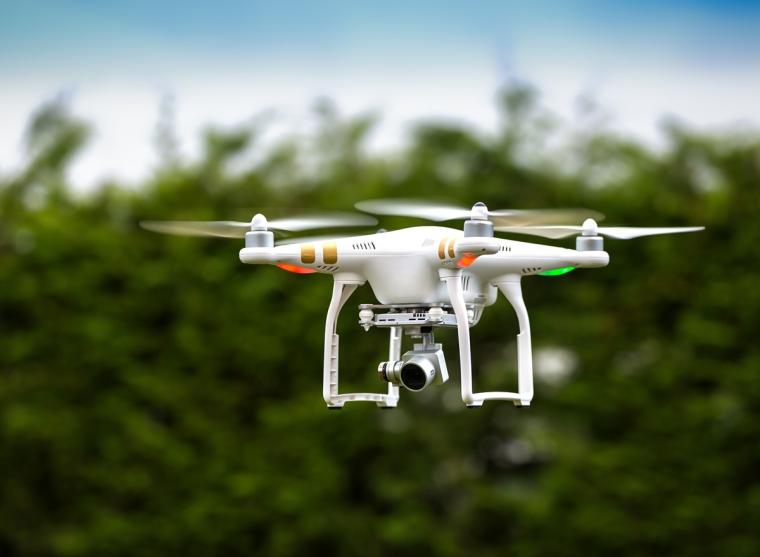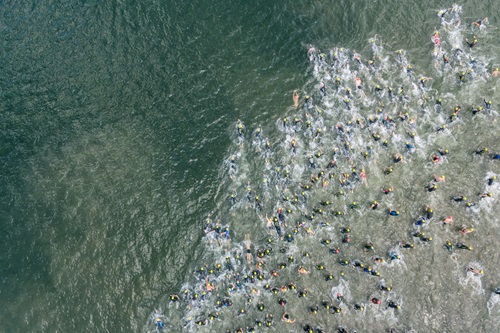
With just about six months to go before the Opening Ceremonies of the 2024 Summer Olympics in Paris on July 26, security plans are well underway. Organizers say terrorism and cyberattacks are the two biggest risks the Games face, but drones are not far behind.
“Drones are also a subject [of concern],” Thomas Collomb, security executive director for Paris 2024, told Reuters late last year. “Armies have been facing that risk for a while now. It has been in the security plan for the Games since 2019.”
Indeed, while most drones that fly over open-air events like football and baseball games, marathons, auto races and concerts are recreational in nature, each one that enters restricted airspace must be treated as a serious threat.
“You never know what a drone is carrying; it could be a powder substance or a small bomb element,” Kevin Dooley, senior director of security and transportation for Major League Baseball’s San Diego Padres and Petco Park, told Gameday Security magazine in 2022. “And you never know how people are going to react to it. I’ve seen situations where people have attempted to throw something at a drone, but don’t know what’s in that drone. If it’s hit, what’s going to happen? The worst-case scenario is that a drone is not being used for recreational purposes and is intended to cause harm.”
When the National Football League’s Baltimore Ravens hosted the Cincinnati Bengals in December, a drone flyover forced play to pause. During that game alone, officials intercepted five drones, according to AthleticBusiness.com. “[O]fficials used technology to identify drone pilots and explain that they couldn’t fly their drones,” the magazine reported. “The Federal Aviation Administration can then investigate the incident and levy operators with fines and suspended pilot certifications.”
As the Federal Aviation Administration website notes: “Flying drones in and around stadiums that seat 30,000 people or more is prohibited by law beginning one hour before and ending one hour after the scheduled time of any of the following events: Major League Baseball Game, National Football League Game, NCAA Division One Football Game, [and] NASCAR Sprint Cup, Indy Car, and Champ Series Race.”
But drones aren’t all bad, of course. Competitive surfing officials even think drones can help resolve a judging controversy within the sport.
Here are more details from DroneDJ.com, a drone news site:
Controversy over the construction of a reef-anchored judging stand is undermining excitement over the 2024 Summer Olympics’ surfing competition — only the second appearance of the sport in the quadrennial global gala’s history. Now a workaround solution is being forwarded by international officials, who propose using drones among other tech alternatives to provide scorers views needed for evaluating rides.
As DroneDJ has noted in the past, drones have revolutionized the way surfing is photographed and videoed by allowing pilots to take image-capturing sensors far closer and deeper into waves than ever before. … Drones … can zoom in very close from non-obtrusive distances, filming from a variety of angles — including on swells so huge they prevent any but the most skilled and suicidal of surfers (and virtually no photographers) from heading out. Now UAVs [unmanned aerial vehicles, or drones] are being proposed as a solution to an environmental dispute surrounding the surfing portion of the 2024 Summer Olympics.
Though most events will be held in the host city of Paris, the surfing competition will be staged in Tahiti (whose possession by France generates controversies of its own, but those are another story). The spot: the legendary, massive liquid slab at Teahupo’o, where international competitions are usually judged using a bamboo stand placed upon the coral lurking beneath just inches of water.
Planners of the 2024 Olympics are building a structure in aluminum this time, involving construction and transport work that local surfers, residents, politicians and environmentalists say [is] massacring the fragile reef.
 The solution now proposed by the sport’s governing International Surfing Association (ISA) is to spare the reef by positioning judges on the beach, and feeding them images from a variety of high-powered cameras – including those aboard drones.
The solution now proposed by the sport’s governing International Surfing Association (ISA) is to spare the reef by positioning judges on the beach, and feeding them images from a variety of high-powered cameras – including those aboard drones.
That idea, however, ultimately was rejected by Paris 2024 officials, and construction of the tower continues. It is expected to be completed by mid-May, in time for a World Surf League event that will be considered a dress rehearsal for the Olympics, according to France24.com.
That said, the potential of using drones to judge a sporting event has raised questions in the surfing community — including these from the surfing website TheInertia.com: “How would that work? Wouldn’t it be unfair that the angle the judges use to view the wave would not be consistent each time from a drone? How many drones would be buzzing around the surfers to properly cover all the waves? How many drone operators would you need? Isn’t that going to be expensive? How often would you need to swap out batteries? Would it be used for watching replays or judging in real time?”
“I think the use of drones to complement judging is an excellent idea,” Gustavo Corrales, head judge of the Costa Rican Surfing Federation, told writer Evan Quarnstrom. “Perhaps the flight and coverage area of the drones can be divided into sectors. It could help add details to certain aspects of judging such as height of an air, section of the wave in which the maneuver was executed, angles, axes and degrees) of rotation, the take off line (of the air), etc.”
Other experts noted that some drones boast longer battery life than others, adding that it likely would take a total of six drones with three always in the air at different angles to make judging surfers via drone fair and consistent.
“A tower-less Olympics at Teahupo’o would have provided the impetus to test it out,” Quarnstrom wrote. “But now that Paris 2024 has confirmed they are building the tower, there is likely no longer a need for judging drones. Regardless, it might not be as crazy of an idea as it seems.”

